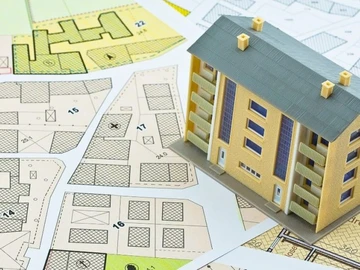Zimbabwe’s real estate market has seen a troubling rise in fraud involving title deeds. From fake identity documents to counterfeit deeds used to unlawfully sell property, unsuspecting buyers are being scammed, often losing their life savings in the process.
These fraudulent transactions not only affect individuals but also undermine public trust in the country’s property system. The time has come to consider practical reforms and safeguards that can better protect buyers, sellers, and legal practitioners involved in the property transfer process.
What Does Title Deed Fraud Look Like?
Based on publicly reported cases, here are two common tactics fraudsters use:
- Forged IDs: Criminals create national identity documents with the real name and details of the rightful property owner, but replace the photo with their own.
- Fake Title Deeds: Fraudsters present counterfeit title deeds to deceive buyers or push through illegal transfers at the Deeds Registry.
6 Key Measures to Reduce Title Deed Fraud
1. Stricter Verification of Identity Documents
Most title deed fraud cases involve the use of fake or tampered national IDs. To combat this:
- Estate agents, conveyancers, and even ZIMRA should be able to verify IDs through the Registrar General’s Office (RG).
- A special authentication desk could be set up either at the RG’s office or the Deeds Registry for real-time verification.
- Digital verification systems may also be introduced, allowing limited online access to RG records strictly for validation purposes.
- Where available, passports should be used to verify whether the ID holder has travelled and confirm legitimacy.
2. Mandatory Due Diligence Checks
Buyers, estate agents, and lawyers must always perform a Deeds Search at the Deeds Registry. This allows them to:
- Compare the seller’s presented title deed with the registered copy.
- Verify legal ownership and confirm there are no restrictions, caveats, or mortgage bonds attached.
This should never be skipped or rushed. It’s a non-negotiable step in the sale process.
3. Improve Internal Controls at the Deeds Registry
The way original documents are accessed at the Deeds Office needs tightening:
- Access to original title deeds should be strictly limited and monitored.
- A secure digital filing system should log every access and transaction related to a title deed to ensure accountability.
4. Document Scanning & Digital Record-Keeping
All original title deeds and associated seller ID documents should be scanned and uploaded into a secure, centralized database at the Deeds Registry.
- This creates a verifiable audit trail.
- During transfer, registrars can compare the scanned records with the physical documents submitted by the conveyancer.
5. Cross-Agency Communication
The current process involves multiple parties estate agents, conveyancers, ZIMRA, the Deeds Registry. We propose:
- A shared fraud alert system among agencies, allowing them to flag suspicious activity early.
- A case coordination protocol to streamline investigations when fraud is suspected.
6. Public Education & Awareness
Buyers and sellers should be encouraged to:
- Always work with registered estate agents.
- Never pay money directly to sellers only to verified trust accounts.
- Request a full due diligence report before committing to a sale.
Final Thoughts
While Zimbabwe’s real estate market presents lucrative opportunities, it also requires heightened vigilance. Fraud over title deeds is real, and no one should assume immunity.
Through stronger internal controls, improved inter-agency collaboration, technology adoption, and public education, we can create a safer, more trustworthy property market for everyone.
Disclaimer: This article is for general informational purposes only and does not constitute legal advice.
Godknows Hofisi — Chartered Accountant, Commercial Lawyer, & Insolvency Practitioner
Contact: +263 772 246 900 | Email: gohofisi@gmail.com
 Continue with Facebook
Continue with Facebook
 Continue with Email
Continue with Email














